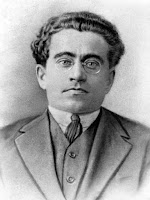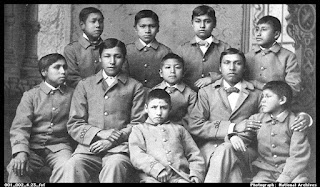 |
| via Wikimedia Commons |
 |
| Dmitry Medvedev @ World Economic Forum |
The authors, Andrei Soldatov and Irina Borogan, who wrote the book in English, are a husband-and-wife team in their mid-thirties, with a well-established reputation as Russian investigative journalists, specializing in security and intelligence, a dangerous subject in Russia. (They told me when I met them in Moscow in 2008 that they had been summoned to the FSB on more than one occasion and threatened with reprisals because of their reporting.) They also have a website, www.agentura.ru, which they founded in 2000, to report on and analyze these issues on a regular basis. Using anonymous sources from within the security services and the Kremlin, along with on-the-spot reporting, Soldatov and Borogan have uncovered new and significant information on the FSB and its relations with the Russian leadership.Obviously, journalistic work in Russia is a touchy, dangerous affair. Amy Knight does a superb job of reviewing the books main points, bringing to light the background of Russian political maneuvering, a subject largely inscrutable to most Americans. Excellent read, and definitely makes me want to read "The New Nobility".
The second work is a reflection on the life of Russian nuclear physicist (creator of the Hydrogen Bomb) and dissident Andrei Sakharov by likewise former Polish dissident Adam Michnik. The New York Book Review article is actually a statement made by Michnik on the 20th anniversary of Sakharov's death.
 |
| via zackstern |
Sakharov for us in Poland was a source of strength and hope during the Communist years, but he was also a challenge. Many of us changed our lives when we saw what he was doing. Unlike many of those who wanted to reform Bolshevism he was not bound by dogma, and he was free from other “isms.” For example, he never believed in nationalist-religious mysticism; he was the heir of the rationalist and liberal tradition. He was not a fanatic devotee of any doctrine—for him, living people were more important than any abstract scheme of ideas.
Having returned from exile in Gorky, he chose the path of compromise and selective support for perestroika, unlike many emigrants and dissidents. He was not a man who was perpetually dissatisfied or obsessed with revenge. He did not believe “the worse—the better.” He understood that “worse is worse,” and “better is better.” And he did all he could to make it better. He wanted a democratic and normal Russia in a democratic and normal world. His speeches in the Soviet parliament promoted this idea.Andrei Sakharov was a true Russian patriot in that he saw potential for his country beyond that of the Communist past. Michnik's words above demonstrate the impact Sakharov created by his personal beliefs, a legacy that still rings today with clarity for many in Russia and Eastern Europe. If you don't know who he is, or what he accomplished, check out his Wikipedia page, linked above, and take some time to read his writings, or take a minute and watch the short news clip below.
American's could learn a lot about our own situation by reading former Soviet dissident works- ohh, sounds like I have an inspiration for a New Year's reading post.
Stay safe, have fun, and ring in the New Year!
















